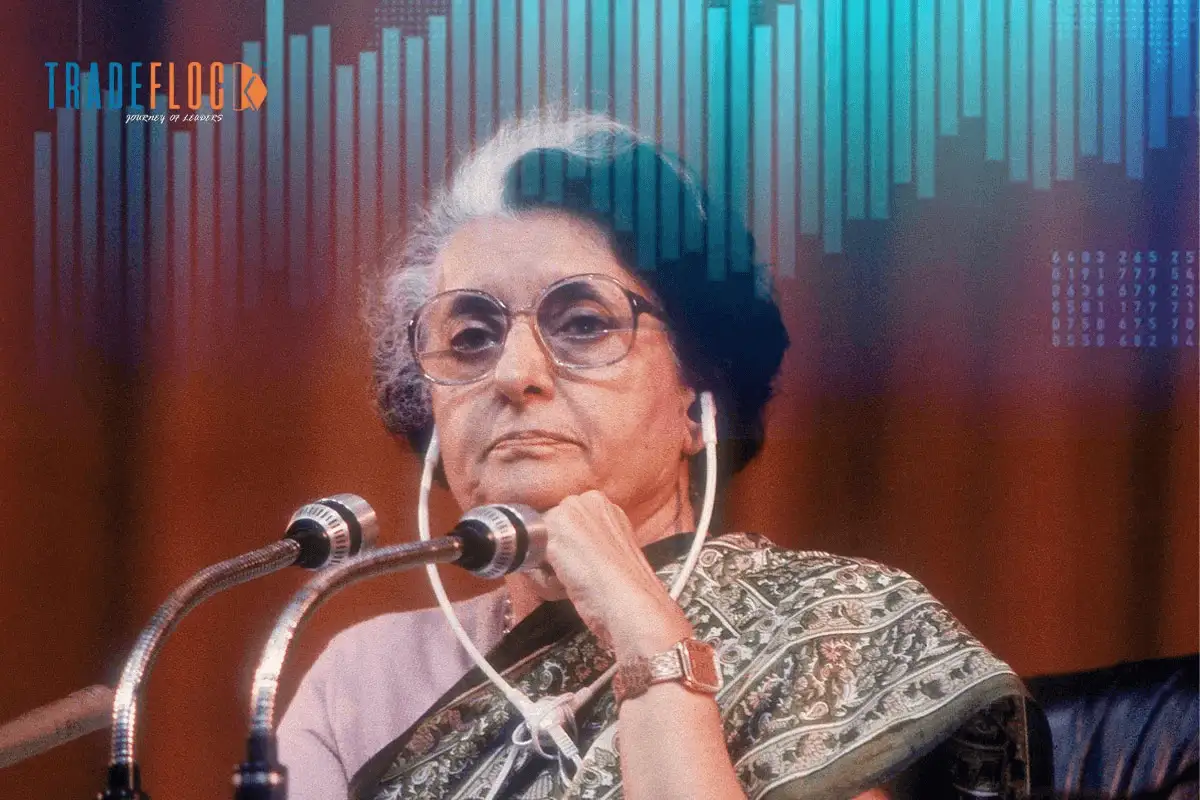On 19th January 1966, Indira Gandhi became the fourth Prime Minister of India. She was the first and, till now, the only woman PM of India. Indira Gandhi’s two tenures as PM (1966-1977 and 1980-1984) saw many important milestones and political upheavals in independent India.
The decisive victory of India in the Indo-Pakistan war, which led to the formation of Bangladesh (1971), ruthless crushing of Naxalite rebellion in West Bengal (1971-72), granting of statehood to Meghalaya, Manipur and Tripura(1972), Emergency (1975-77), Operation Blue Star (June 1984) which led to her brutal assassination some four months later, are some of the major political highlights of her often controversial governance.
Table of Contents
Socialist Stance
Indira Gandhi was and still is known for her socialist economic policy. During her tenure as PM, India tilted even more towards socialism than it did in the Nehruvian era. However, whether she was a socialist by principle or because of political necessity is still open to debate.
The period 1967-75 saw socialism gaining importance in India’s economic and business climate. During that period, aggressive expansion of the public sector and the imposition of added restrictions on private industries were seen. Restricting investments by large firms under the Monopolies and Restrictive Trade Practices Act 1969, tightening controls on exports and imports, and reserving many labor-intensive products for the sole manufacture by small-scale enterprises are some of the measures from her first tenure as Prime Minister. Nationalisation of insurance and coal mines are other features of Indira Gandhi’s first tenure as Prime Minister.
It can be inferred that her professed socialism impeded India’s industrial growth, which gained its due momentum after the liberalisation of the economy in 1991.
However, it should be mentioned that Indira Gandhi inherited a very weak economy plagued with fiscal problems and a drought-induced food crisis, which together led to a sharp recession. The newly appointed Indira Gandhi government had to devalue the currency to address the then-economy’s balance-of-payment crisis. Indira Gandhi managed to recover the Indian economy to a reasonable extent within one year of her becoming the PM.
The Green Revolution, which entails using a high-yielding variety of seeds, mechanised farm equipment, pesticides, and fertilisers in Indian agriculture, gained momentum during Indira Gandhi’s first tenure as Prime Minister. This resulted in a significant surge in food production, particularly in Punjab, Haryana, and western Uttar Pradesh. The Green Revolution eventually made India self-sufficient in food grains.
Bank Nationalisation
Nationalisation of Banks in 1969 can be regarded as one of the most far-reaching economic measures during Indira Gandhi’s first PM tenure. On July 19, 1969, she promulgated an ordinance to nationalise the 14 largest banks. The nationalisation of banks led to a huge increase in the geographical coverage of banks in India. Many banks were opened in rural, hitherto unbanked areas of India, bringing many more people into the banking system.
Nationalisation of banks also resulted in more funds being allocated to small and medium-sized enterprises, agriculture, and many capital-intensive industries like steel, coal, etc., which are building blocks for the economy. Thus, nationalisation of banks contributed to the expansion of India’s agricultural and industrial base.
Earlier, when most banks in India were owned and operated by private entities, businessmen who owned those banks were often accused of transferring deposits into their own companies and neglecting the priority sectors of the Indian economy in the process. Banking coverage was also very limited in India’s private banking era. The condition of banking employees also vastly improved through the nationalisation of banks.
Towards Egalitarianism
During Indira Gandhi’s term as Prime Minister, the principle of equal pay for equal work for both men and women was incorporated into the Indian Constitution. In 1976, the Equal Remuneration Act was enacted to ensure parity in wages for male and female workers and eliminate gender-based discrimination in all matters pertaining to employment and employment opportunities.
Indira Gandhi questioned the continued existence of the privy purse for former rulers of erstwhile princely states and was instrumental in abolishing it, which came into effect through the 26th amendment of our Constitution in 1971. That measure relieved the Indian economy of expenditure. Indira’s anti-inflation program in 1974 helped to sharply lower inflation during the emergency.
India as Nuclear Power
During Indira Gandhi’s governance, on 18th May 1974, India did its first nuclear bomb test. The explosion occurred at the Pokhran Test Range (PTR) army base in Rajasthan, orchestrated by the Indian Army, marking India’s ascent to nuclear power status.. That development was extremely significant for India’s security and international relations and permanently changed India’s position in global politics.






